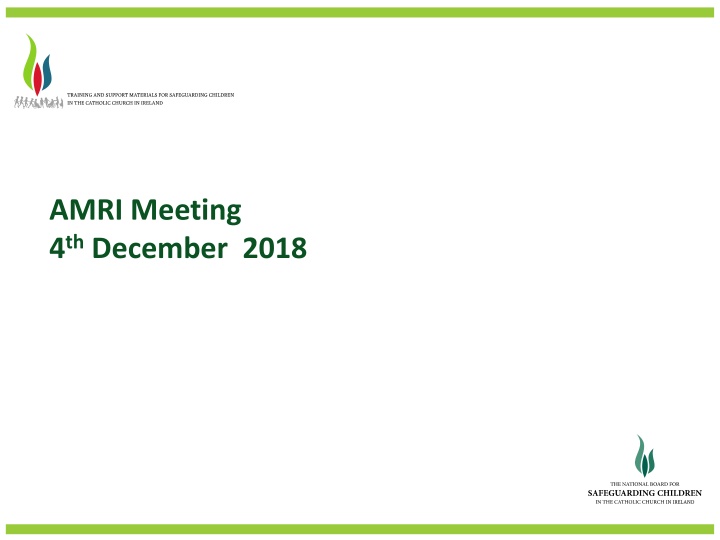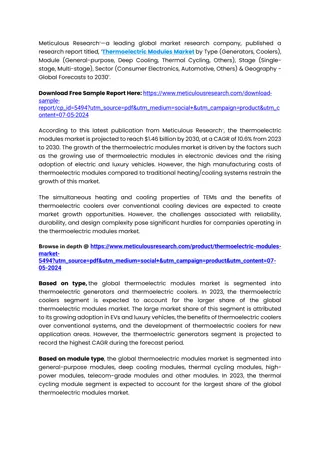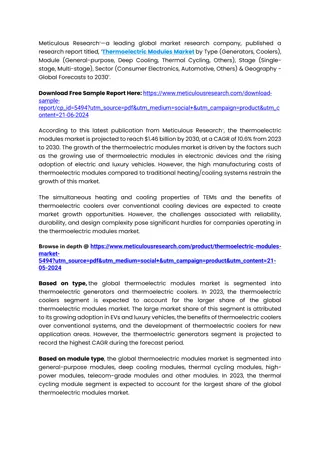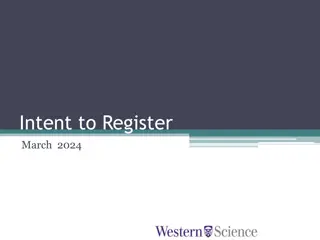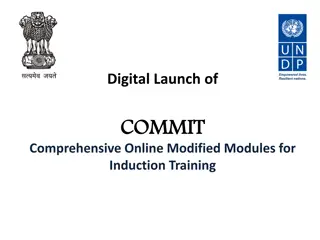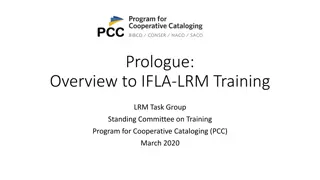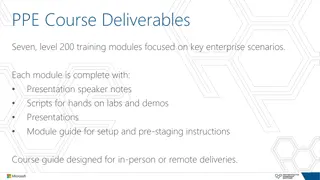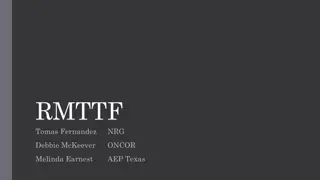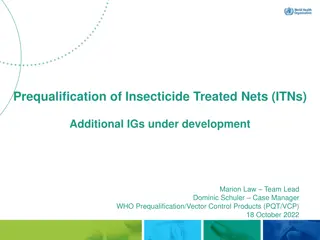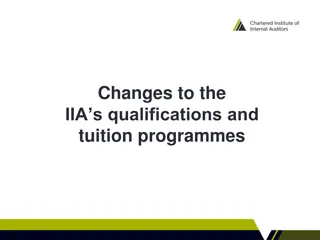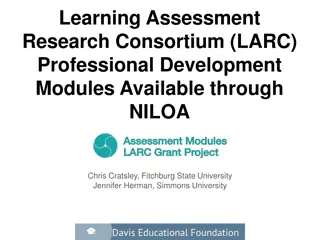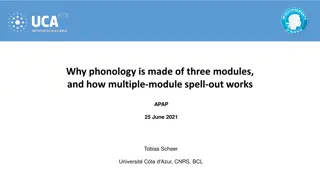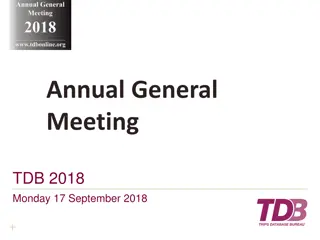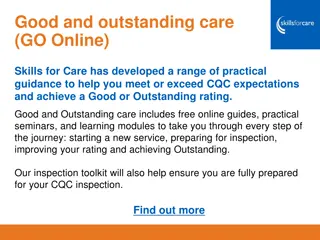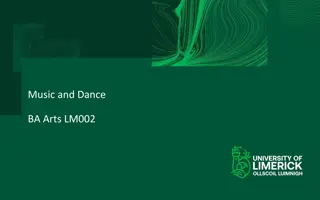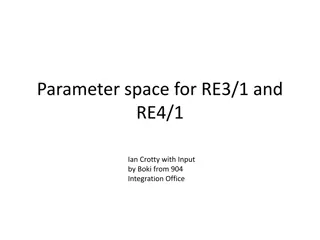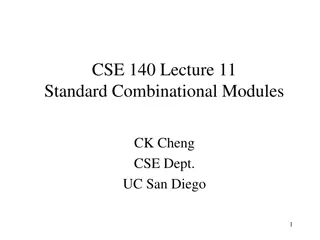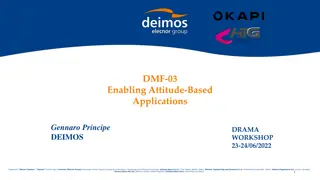Update on AMRI Meeting - December 2018 and Training Modules Overview
The AMRI meeting held on 4th December 2018 covered various topics including introductions, review of NBSCCCI work, guidance updates, upcoming training sessions, and progress updates on safeguarding modules. The meeting highlighted the importance of child safeguarding policies, historical context, theology, abuse impacts, and leadership in safeguarding children. The event also discussed the ongoing development of 10 modules over 7 years for comprehensive training. The update so far detailed the collaborative efforts of formators to finalize proposals for seminaries' rectors and trustees, leading towards starting delivery in early 2019.
Download Presentation

Please find below an Image/Link to download the presentation.
The content on the website is provided AS IS for your information and personal use only. It may not be sold, licensed, or shared on other websites without obtaining consent from the author.If you encounter any issues during the download, it is possible that the publisher has removed the file from their server.
You are allowed to download the files provided on this website for personal or commercial use, subject to the condition that they are used lawfully. All files are the property of their respective owners.
The content on the website is provided AS IS for your information and personal use only. It may not be sold, licensed, or shared on other websites without obtaining consent from the author.
E N D
Presentation Transcript
AMRI Meeting 4th December 2018
Welcome Sr Liz Murphy
Introductions and Purpose of the Meeting
Guidance Updates International Safeguarding Re registration of trainers Serious Incident Reviews GDPR Crisis Management Lay Apostolates John Paul II awards forms
Training 16/01/2019 2,3, 9, 10/2/2019 and 02/03/2019 13/02/2019 27/02/2019 20/03/2019 13/04/2019 15/05/2019 05/06/2019 New DLPs Train the Trainers Course Meeting with An Garda and Tusla New Church authorities Lay Apostolates Trainers Update Care and Support for Church personnel International Missionary Work
Update so far An initial consultation group consisting of formators from St. Patrick s College Maynooth, the Pontifical Irish College in Rome and Redemptoris Mater in Dundalk, (all diocesan seminaries) was created to discuss and develop a detailed proposal for the Rectors and Trustees of the seminaries. The proposal was sent to the rectors in September 2017 which was in turn shared with the trustees of each seminary. Approval for the proposal was granted by the trustees of each seminary in November 2017. Updated paper sent to formation group before being sent to Rectors and trustees for final sign off. Work has continued to develop the modules and plan the cost and logistics for delivery to start in early 2019.
10 modules over 7 years Each module linked to the ratio fundamentalis formation stages Each has core aims and assigned reading Each will require the student to complete a reflective exercise They include: Child safeguarding policies and procedures (full day training delivered in parish by a trainer accredited with the NBSCCCI) Historical and legislative context Children s rights Theology of safeguarding children The impacts of abuse Good safeguarding practice and boundaries Personal challenges when dealing with abuse Communication and digital media Spiritual healing Leadership and safeguarding children
Methodology trialed in two Church Bodies Approved by Bishops Conference in June Focus is on practice Timeframe Recruitment and training Reviewers Data processing deeds
Why do we need to share information? The effective protection of a child often depends on the willingness of people to share and exchange relevant information appropriately. It is critical that there is a clear understanding of the Church authority s professional and legal responsibilities with regard to data protection, confidentiality and the exchange of information.
Why do we need to share information? The deficiencies in both internal and external communication of essential child protection information by various Church authorities has been identified and criticised in a number of statutory reports, including the Ryan Report, the Ferns Report, the Report of the Commission of Investigation into the Catholic Archdiocese of Dublin (the Murphy Report), and the Cloyne Report. It is essential that the lessons from these reports are learned, and that improvements result in the sharing of information.
Situations when information must be shared Sharing with the statutory authorities All allegations, suspicions concerns or knowledge regarding child abuse that meet the threshold for reporting must be passed to the statutory authorities (Guidance 2.1A). Disclosure should include names, addresses, details of the allegations, and if the respondent has made an admission, where this information is available. Sharing information with the NBSCCCI Once the Church authority has signed the data processing deeds, information can be shared with the NBSCCCI for these three purposes: a. Maintaining records of all allegations notified to it for monitoring purposes. b. Retaining records relating to advice offered directly or through the NCMC. c. Accessing records for audit function and cannot retain and/or use the personal information accessed during its audit for further purposes.
When sharing information with the NBSCCCI This will be covered by 5 new Deeds and 5 MOUs 1. Deed for anonymous allegations against clerics and religious with accompanying MOU. 2. Deed for advice with accompanying MOU (but if you want advice you must provide full information). 3. Deed for NCMC with accompanying MOU. 4. Deed for Review with accompanying MOU. 5. Deed for support with case management records with accompanying MOU.
When informing us of an allegation The referral form must be used, telling us through advice or NCMC is NOT notifying us that an allegation has been received. When you use the referral form: The Complainant s details are anonymised Name of respondent is anonymised Details you need to give (as long as it doesn t directly identify the person): DOB Role in Church body Current contact with children Dates/times the incident occurred The type of abuse Any witnesses Whether the complainant knows this referral is being made
Situations when information can be shared As part of an investigation by the statutory authorities During the course of an investigation, if the Garda /PSNI request information from a file, every effort should be made to cooperate. However, careful consideration should be given to sharing the following without consent: - Legal advice obtained by the Church authority may be privileged and may not be shared without the consent of the Church authority; - Assessment reports may require the permission of the author and the respondent.
Situations when information can be shared Between Church bodies There may be occasions when information between Church bodies is required. Under canon law, faculties to minister as a priest in public can only be granted by a bishop. It is therefore appropriate that information is shared between a provincial of an ordained cleric from a religious order/congregation when an allegation of child abuse is made against that priest, so that the bishop can determine whether or not to withdraw faculties. As each of these situations is unique, the decision whether and what to share with another Church body will be on a case-by-case basis.
Questions which may help making this determination Does the recipient have a legitimate interest in receiving this information? What is the justification for sharing information? Is there a risk of harm to an identified or unidentified child if such information is not shared? Can permission be obtained from the respondent to share information? Should the respondent be informed that the information is being shared? Is the respondent in public ministry as a priest and has faculties from the bishop? Is the respondent in the public ministry of a Church body? Should information about the complainant be redacted?
Web Site Websites must contain Policy statement (Page 8 ) clearly on display not requiring any clicks to access Link to the Child Safeguarding Policy Child Safeguarding Statement- Tusla requirement for those ministering with children DLP names and up to date contact information Procedures- either yours or link to the NBSCCCI (if the later clear statement that you are following the NBSCCCI)
Example website statement for those following NBSCCCI guidance For the procedures to implement the child safeguarding policy, the INSERT NAME OF CHURCH BODY follows the guidance of the National Board for Safeguarding Children in the Catholic Church in Ireland available here www.safeguarding.ie/index.php/guidance
